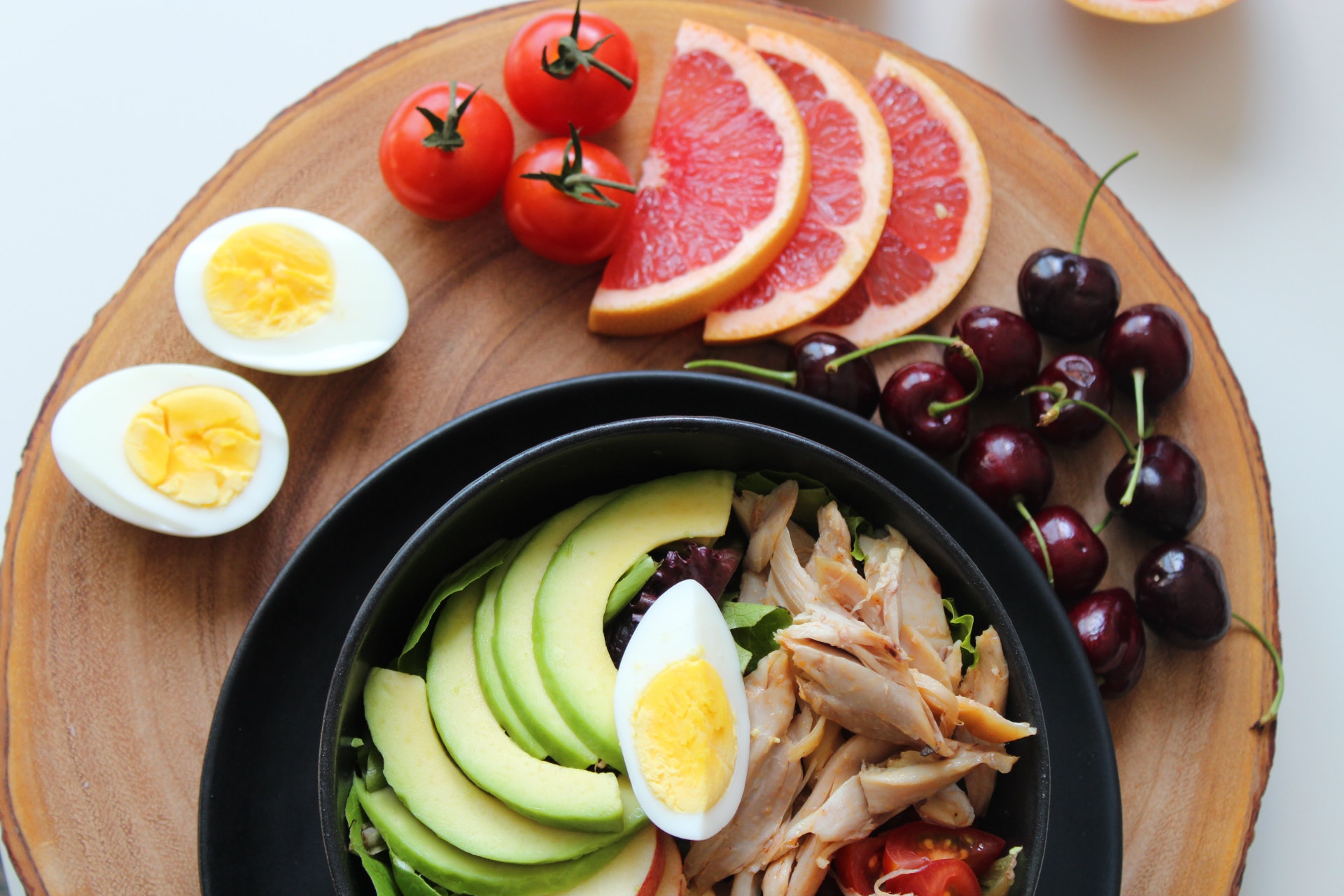Choosing nutritious meals to eat daily is an important part of staying healthy. Eating a well-balanced diet rich in nutrient-dense foods can offer your body the vitamins, minerals, and other nutrients it requires to function correctly.
Healthy foods can give a significant number of necessary nutrients in comparison to their calorie level, as well as fiber, which is crucial for maintaining healthy digestion and preventing constipation. They contain little added sugar, saturated fat, or sodium. Obesity, heart disease, and high blood pressure can all be exacerbated by consuming too much-added sugar, saturated fat, and sodium. Eating a range of these meals can ensure that your body receives the nutrients it requires to function correctly.
What are the Healthiest Foods to Eat Every Day?
There are several meals you can consume every day to help you lose weight, whether your goal is to reduce weight or maintain your present weight. Additionally healthy for your body, these foods. So continue reading to learn what the healthiest foods are to eat every day.
The healthiest things to eat on a daily basis include:
- Fruits and vegetables include a lot of vitamins, minerals, and antioxidants.
- Quinoa, oats, and brown rice are examples of whole grains that are rich in fiber and other minerals.
- Lean proteins, such as fish, poultry, and lentils, are essential for mass muscle maintenance and overall body strength.
- Avocados, almonds, and olive oil provide healthy fats that can help lower cholesterol and reduce the risk of heart disease.
- Milk, Yogurt, and cheese are examples of low-fat dairy products that are high in calcium and other minerals.
It is critical to eat a well-balanced diet that includes a variety of food groups.
Reference: What is Healthy Food?
How Healthy are Bananas?
Bananas are a nutritious staple food that is high in potassium, vitamin C, and fiber. They also include flavonoids, which act as antioxidants and stop cancer signaling as well as cell damage. In addition to being high in potassium, bananas are good for your heart and can aid in weight loss.
Your heart and kidneys depend on potassium, which is a necessary element. It helps control your blood pressure and keeps the water balance in your cells healthy. Additionally, it keeps your muscles and nerve cells in good condition.
Are Oranges Healthy?
You may strengthen your immune system by including oranges in your diet on a regular basis. They include a lot of antioxidants, vitamins, and minerals. Furthermore, these fruits can help with blood pressure management. They also contain a lot of fiber, which might reduce the risk of heart disease. They can be added to a wide range of foods, such as salads, sandwiches, and smoothies.
Oranges can lower your risk of getting cancer as well. They include flavonoids, which could aid in halting the spread of cancer cells. They lessen inflammation as well. Chronic conditions like diabetes and arthritis can develop as a result of inflammation.
How Healthy are Chickpeas?
Chickpeas are an excellent choice if you are looking for a gluten-free, low-fat, plant-based protein source or if you just want to ensure that your body is getting the nutrients it requires to stay healthy. They provide a number of advantages for your weight and digestive health.
Chickpeas include high levels of dietary fiber, which reduces the risk of getting heart disease. They contain potassium, which promotes heart health. They are a good supplier of magnesium and manganese. Additionally, they contain a lot of vitamin B6, which is crucial for maintaining heart health.
Can We Eat Eggs daily?
Eggs are one of the healthiest foods to consume daily. They are loaded with nutrients, vitamins, and minerals that are good for the heart. They also prolong your feeling of fullness. They are high in protein, which explains this.
The best aspect is how inexpensive eggs are. Most large supermarkets charge around 14 cents for a single egg. They are consequently among the most reasonably priced proteins available.
A major source of vitamin D is eggs. This vitamin from the sun aids in calcium absorption. Antioxidants, which protect your cells from free radicals, are also included in them.
How Healthy can Spinach be to Eat Daily?
One of the healthiest foods to eat every day is spinach, whether you prepare it for a meal or add it to a salad. Iron, antioxidants, and other minerals are abundant in it. These nutrients support healthy cell growth and disease defense in the body.
Additionally, spinach has calcium and magnesium, two elements crucial for strong bones. For the body to absorb calcium, vitamin D is also crucial.
Spinach’s antioxidants shield the body from free radical damage. It is well-recognized that these free radicals lead to illness. These antioxidants lessen inflammation. They also aid in preventing macular degeneration brought on by aging.
Can Seeds be a Healthy Option to Eat Daily?
Healthy minerals, necessary fatty acids, and protein can be added to your meals by consuming seeds. Antioxidants and fiber are both abundant in seeds.
Seeds being high in omega-3 fatty acids, can reduce the risk of heart disease. The blood cells are also fed by these fatty acids. Additionally, they lessen inflammation, which can contribute to a number of disorders.
Additionally, seeds include a lot of dietary fiber, which supports the growth of good bacteria in your stomach. Additionally, it has been demonstrated that this fiber can assist in preventing stomach issues.
Can you Eat Yogurt Every Day?
Yogurt is a healthy addition to your diet for a variety of reasons. It contains significant amounts of calcium and protein, two elements essential for healthy bones and muscles. In addition, it offers a range of vitamins and minerals, such as zinc, phosphorus, potassium, and vitamin B12.
Yogurt also includes beneficial bacteria known as probiotics, which can support a healthy immune system. Additionally, it may help you recover from conditions like irritable bowel syndrome and other ailments, as well as your digestive health.
Yogurt is a fantastic meal to include in your diet, whether you want to have it as a snack or include it in your morning cereal. It’s a fantastic strategy to manage your weight as well.
Can Mushrooms be Consumed Daily?
Mushrooms can be a nutritious supplement to your diet. They are high in nutrients, including vitamin D, potassium, and antioxidants, while being low in calories. They also include beta-glucans, a type of carbohydrate that has been found to have immune-boosting qualities.
Eating mushrooms on a daily basis is usually considered harmless and may provide a variety of health advantages. Mushrooms, like other foods, should be used in moderation as part of a balanced diet. Furthermore, some people may have an adverse reaction to mushrooms, so be careful of how your body reacts to them.
Furthermore, if you are pregnant or have an impaired immune system, you should check with your doctor or a nutritionist before including mushrooms in your daily diet.
How Healthy is a Kiwi?
Kiwi can be a nutritious supplement to your diet. They are high in nutrients such as vitamin C, potassium, and antioxidants while being low in calories. Eating kiwi on a daily basis can bring a variety of benefits, including improved heart health, immunological function, and digestion.
Kiwi is also high in dietary fiber, which can help with digestion. They also include enzymes that aid in the breakdown of proteins, which aids digestion and prevents constipation.
Kiwi should be eaten in moderation as part of a diet that is well-balanced, just like other fruits. Furthermore, some people are allergic to kiwi and may have adverse reactions. It’s critical to be conscious of how your body reacts to kiwi and to seek medical advice if you have any concerns.
In general, eating a kiwi per day is deemed safe, but for tailored suggestions, it is always preferable to speak with a doctor or a nutritionist.
Can We Eat Quinoa Every Day?
Quinoa is a high-fiber, adaptable grain that can be a healthful supplement to your regular diet. It contains plant-based protein, fiber, and minerals like magnesium and phosphorus.
Quinoa is also gluten-free, which is advantageous for those who have gluten sensitivities or celiac disease. Quinoa has a number of health advantages, including support for heart health, immunological function, and digestion.
However, like with any food, Quinoa should be consumed in moderation as part of a well-balanced diet. Eating too much Quinoa may result in excess of some nutrients and, if ingested in sufficient quantities, weight gain. Furthermore, some people are allergic to Quinoa and may have adverse reactions. It’s critical to be mindful of how your body reacts to Quinoa and to seek medical advice if you have any concerns.
What Foods Should you Avoid Daily?
The following are some common foods that are usually considered unhealthy and should be limited or avoided in a daily diet:
- Foods that have been processed (such as frozen dinners, packaged snacks, and high-sugar cereals)
- Takeout dinners and fast food
- sweetened beverages (such as soda, energy drinks, and sweetened coffee and tea)
- Foods that have been fried (such as French fries and fried chicken)
- Foods with a lot of added sugar (such as candy, cookies, and pastries)
- Saturated and trans-fat-rich foods (such as butter, margarine, and shortening)
- Sodium-rich foods (such as canned soups, frozen meals, and deli meats)
- Excessive alcohol consumption.
It’s important to remember that everyone’s dietary needs and constraints are unique, so it’s always better to seek tailored guidance from a qualified dietitian.
Conclusion
Among the healthiest foods to consume daily include fruits and vegetables, whole grains, lean proteins, good fats, and low-fat dairy products. These foods provide a variety of critical vitamins, minerals, and other nutrients that are necessary for optimum health. Quinoa, oats, brown rice, fish, poultry, legumes, avocados, pecans, olive oil, milk, Yogurt, and cheese are some examples of these foods.
It is critical to maintaining a balanced diet with a range of food groups, but it is also necessary to consider individual dietary preferences and constraints. Eating an excess of any one food can lead to an excess of specific nutrients as well as weight gain if consumed in huge quantities. Furthermore, it is critical to be aware of how your body reacts to different foods and to visit a doctor or a nutritionist if you have any concerns.

